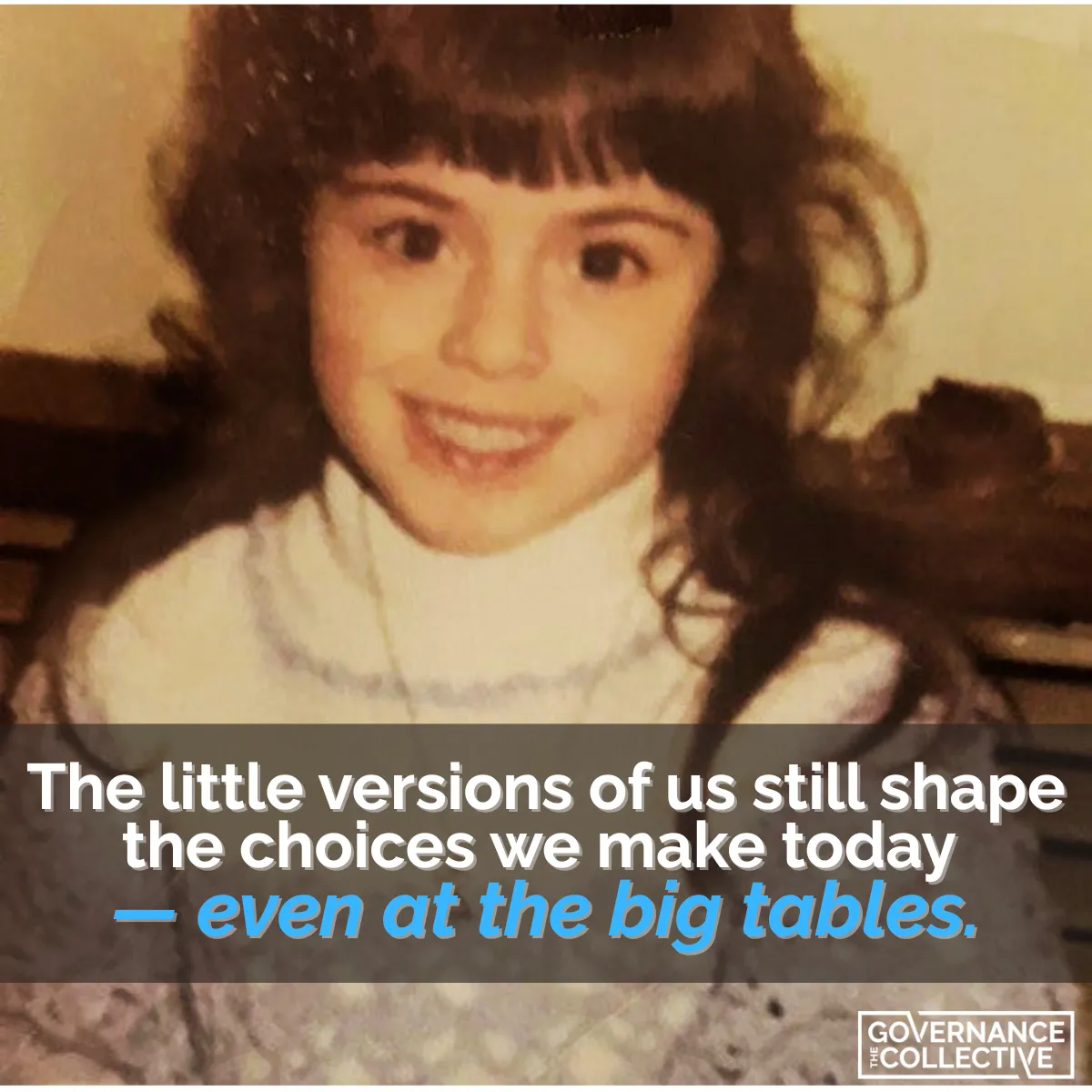
The Little Versions of Us Still Shape the Choices We Make Today -- Even at the Big Tables!
I’ve been reflecting on this photo — Me, aged 4, in a handmade dress, fringe freshly cut by Mum, smiling on my birthday.
I don’t remember feeling excited. But I do know I felt safe. Loved. Quietly alert. Watching everything.
What I didn’t know then was this: Every part of us — including our childhood conditioning — walks into the Boardroom with us.
And that conditioning? It shapes:
How we hold power (or give it away)
What we tolerate to “keep the peace”
Why we freeze when the Chair looks our way
The stories we carry about being “good”, “clever”, “liked” or “safe”
We don’t just show up as our role — we show up as our accumulated experiences.
I know I do.
And if you’re honest, you probably do too.
That 4-year-old version of me?
She learned quickly how to read a room.
How to stay quiet to avoid conflict.
How to make things OK for others before herself.
And she kept me safe in many ways.
But as an adult, a leader, a strategist — I’ve had to gently rewire those survival strategies so I can be the person the moment truly needs.
That’s the real work, isn’t it? Letting go of what kept us safe — to step into what makes us powerful, clear, and aligned.
So let me ask you:
🌀 What childhood beliefs are still driving your Boardroom responses?
🌀 What dynamics did you grow up with that you now (unconsciously) recreate in leadership spaces?
🌀 What would shift if you recognised that — and chose differently?
Not from shame. Not from blame.
But from deep awareness and choice.
That’s behavioural governance in action.
And it’s where real alignment begins.
With heart,
Lisa x
P.S. If this landed with you — and you’re starting to sense that behavioural dynamics might be quietly shaping (or sabotaging) your decision-making environments — let’s talk.
I’d love to support you in exploring what’s really going on, and what might need to shift in how power, safety, and clarity show up in your Boardroom.
👉 Book a confidential chat with me here
It starts with awareness — and a conversation.
